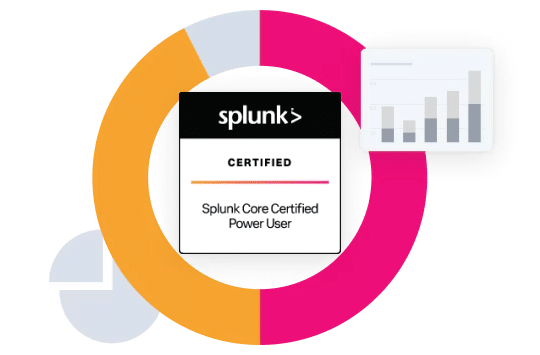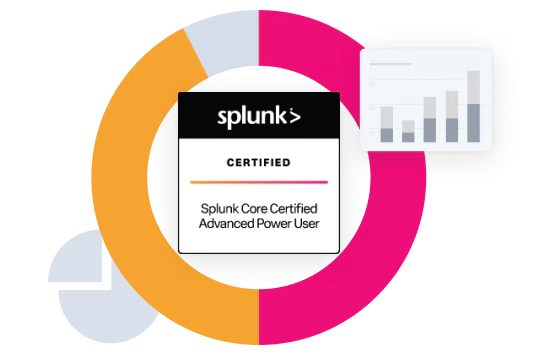
Become a Splunk Core Certified Power &
Advanced User
Master Splunk Search, Reporting, and Dashboards

What are Power User Certified courses?

Intakes (Virtual Live): 15 & 17-19 Sep 2025 | 9-12 Dec 2025
Expand your foundational skills with the Splunk platform as you step into the role of a power user.
In this course, you’ll gain practical knowledge of how to use searching and reporting commands effectively. You’ll also explore how to create and manage knowledge objects, including tags, event types, workflow actions, and data models.
Additionally, the course will cover field aliases, calculated fields, and macros, equipping you with the ability to normalize data using Splunk’s Common Information Model (CIM).

Intakes (Virtual Live) : 8-10 Oct 2025 | 5-7 Nov 2025 | 3-5 Dec 2025
Advance your skills with more complex searching and reporting functionalities in this comprehensive course.
You’ll dive into the advanced features of knowledge objects and learn best practices for creating dashboards and forms.
By mastering these capabilities, you’ll be equipped to generate intricate searches, detailed reports, and dynamic dashboards that enhance data-driven decision-making within your organization.
Look at the Numbers – Why Splunk Certifications Matter
85%
of Splunk-certified professionals saw a significant increase in their job performance.
93%
of IT managers said Splunk certifications improve their team’s problem-solving efficiency.
90%
of organizations report faster incident resolution using Splunk-certified employees.
80+%
of learners say Splunk certifications help accelerate their career growth.
Splunk Core Certified Power User – Learning Path
Splunk Core Certified Advanced Power User – Learning Path




